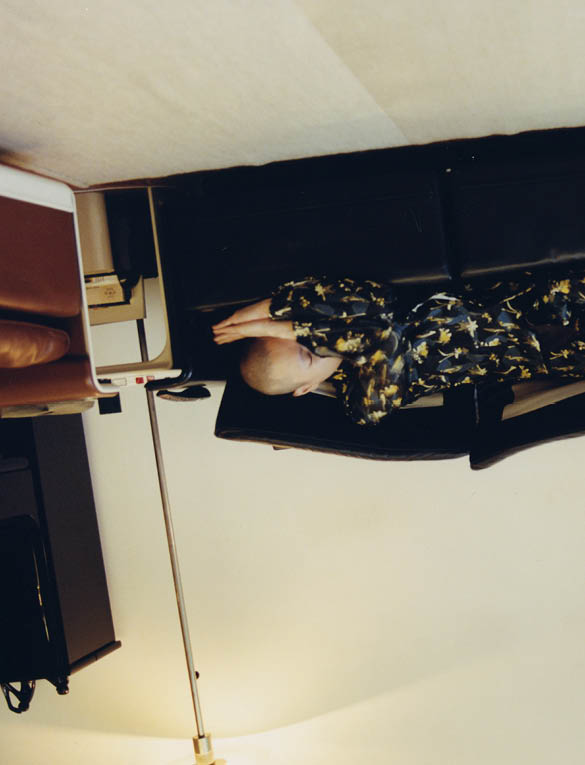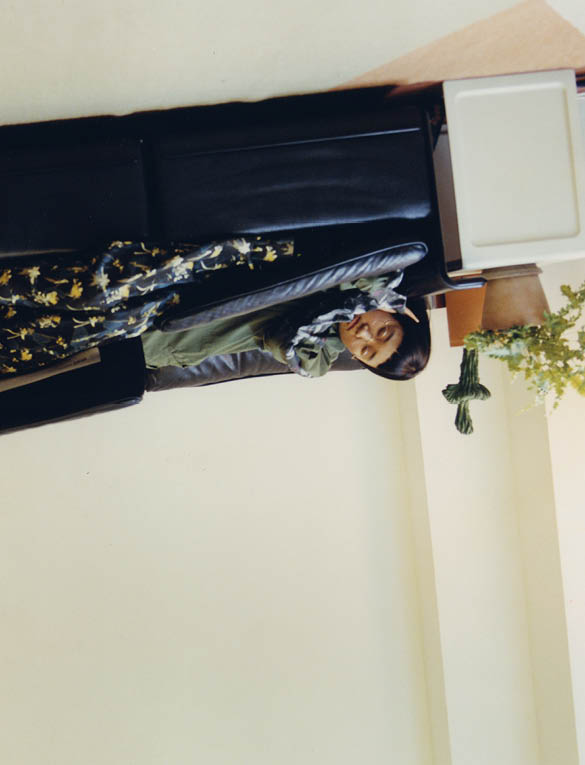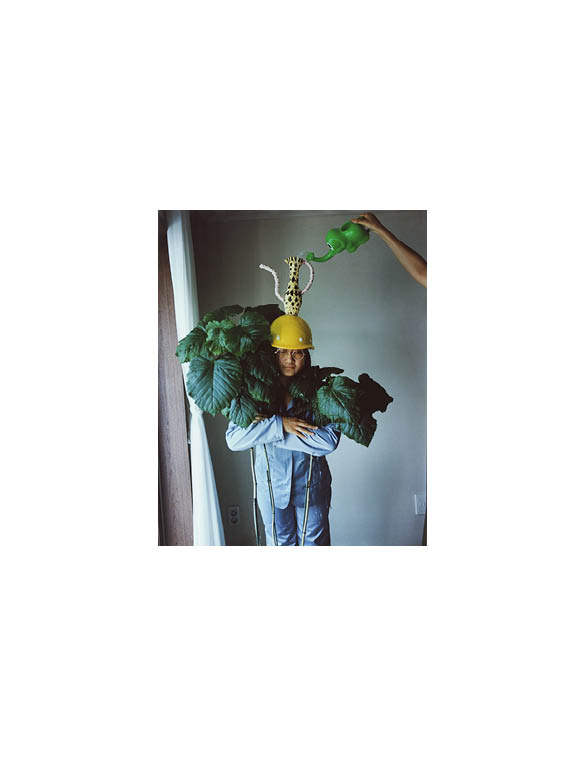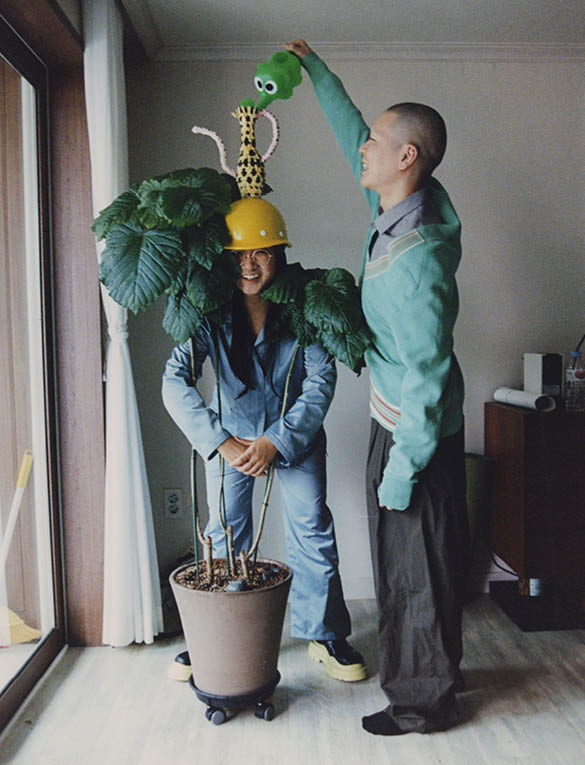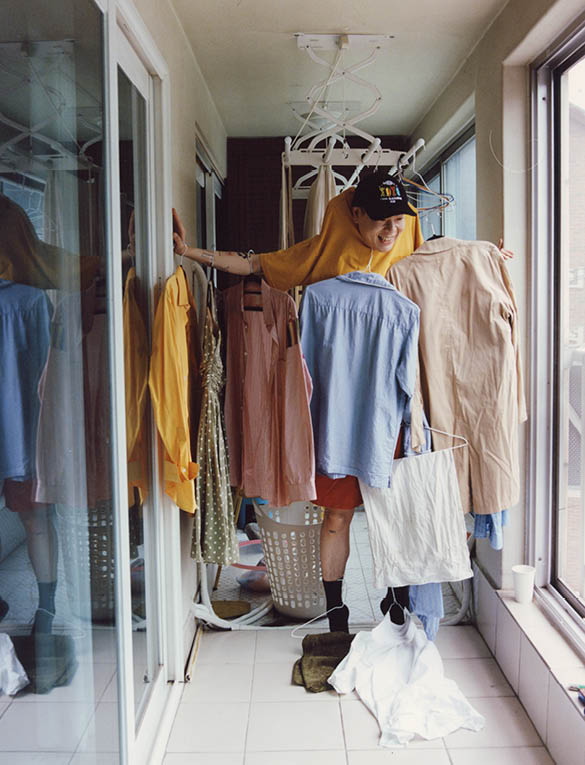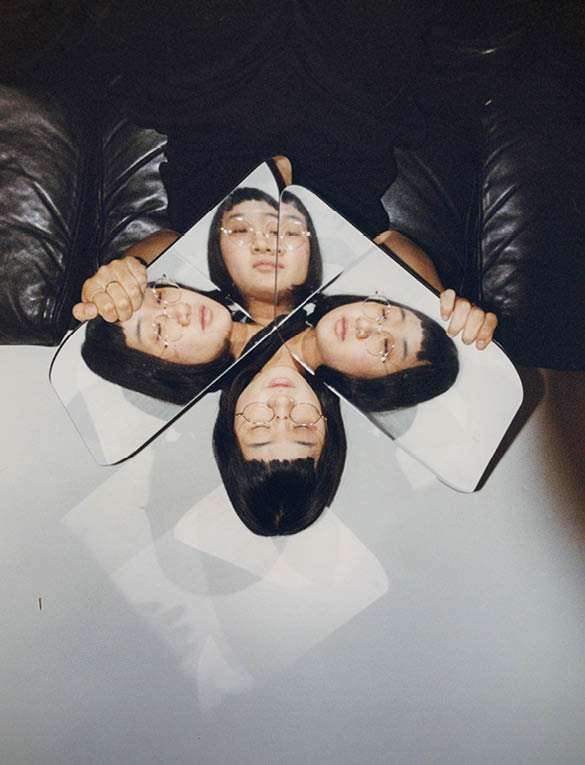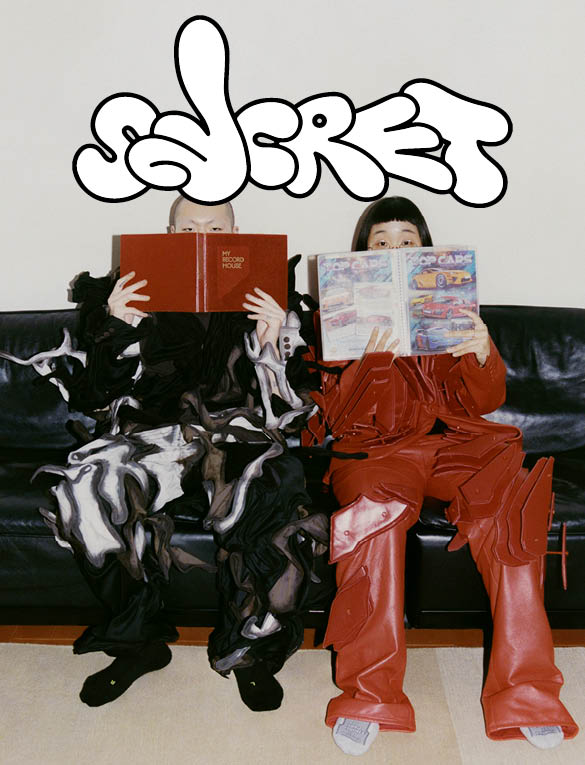
Issue 4 | Fall 2021
Cover Story
Yaeji and Oh Hyuk Embrace the Passage of Time
As both artists approach the twilight of their 20s, Yaeji and Oh Hyuk are charting an exciting new path. In the issue 4 cover story, they discuss their two new singles, resisting categorization, and making music from the heart.
Text: Jeff Ihaza
Photography: Cho Gi-Seok
After a meteoric rise within indie and dance music circles, the musician Yaeji found herself swept into a whirlwind of success. Just before the pandemic hit, she released her debut mixtape What We Drew on XL records. It was poised to send the singer, DJ, and producer on a world tour, solidifying her as one of the biggest new acts around. Then, of course, everything came to a screeching halt. For Yaeji, born Kathy Lee in Queens, New York, it might have been a blessing in disguise. “I needed to pause. I think if I did go on a tour that year, it might’ve depleted my energy and my soul,” she tells me over Zoom. “I came out of this understanding myself so much better. Which can only help with my music because it is about what I understand. So in a way, I am just grateful.”
Now, after what by today’s standards might seem like a long hiatus, she’s ready to emerge with a distinctly new sound. She recently connected with friend and fellow musician Oh Hyuk for a pair of tracks that feel as liberated as the musician describes herself as these days. “29” and “Year to Year” confront the passage of time with delicate care and confidence. In conversation, the two artists describe making music with intention and rejecting society’s obsession with youth.
So, talk a little about how you both met and how the collaboration started.
Yaeji: We have a bunch of mutual friends in Korea and, I think for me it was mainly through Dawn and Dasom, who I’ve known for a bit. When Dasom introduced us, I was already familiar with Hyuk’s music. We got to hang out a few times throughout a couple of years before we got into music.
Hyuk: Yeah, that’s how we met.
Were you always thinking about making music together, or did that happen separately from you guys being friends?
Hyuk: It was more out of coincidence. We weren’t planning anything, but after we met a couple of times, it just came out naturally.
What made you feel like it was a good creative match?
Yaeji: I think for me because I’ve always been super particular about who I collaborate with. Honestly, this is the first time I’ve ever collaborated with someone in this way, where it’s from start to finish and the boundaries are blurred of who’s producing, who’s writing, and all of that. I think trust and faith came first for me, just from speaking with Hyuk and getting to know him and knowing that we have all these mutual friends that I love and trust. For me, I felt like we had a lot of similarities as people, and in the way,, we grew up, and things like that. So then the music came more naturally after that.
What was the songwriting process for the two songs?
Yaeji: For “Year To Year,” which came first, I had initially written the demo two years ago, and I played it for Hyuk when I first went over to his place with Dasom. He was like, “It’s cool.” Then I think it was a year or so later that we started writing stuff together. When we got together in person we were like, “should we revisit this?”
For “29,” I specifically wanted to sing about the push and pull of time, and the different ways time feels depending on whether I’m in Korea or America. Then when we were finishing it together, Hyuk wrote the other half of the lyrics, which then became the intro to the track.
Hyuk: For the intro, it was also about time. The importance of age 29 is very prevalent in Korea. So, I thought it would be interesting to focus on that. 29 marks the end of your 20s, it’s like an end of a decade, but it’s also the start of another decade. So that’s what the lyrics also talk about.
Both of you are younger than 29, right?
Yaeji: We’re both 28. Actually, Hyuk turns 28 on his birthday in October. But in Korea, the age system is different. Everyone turns a year older on January 1st and you’re already one when you’re born. So I was always older in Korea by a year or two. I think there are overlapping things between different cultures, like the significance of your 20s, and what it means to enter your 30s, and all these milestones the world tells you to meet before you enter your 30s. So I think it’s just about sitting between all of these thoughts.
Especially since you travel between Korea and the U.S., can you talk about navigating that different sense of time? Do you feel like you have to act more mature in one place over the other?
Yaeji: Not only that, I feel like my family is there, which means I have to click into a slightly different mode. I become a slightly different person when I travel back to Korea. I end up having different dreams. When I talk about these thoughts that I have in the States to my friends in Korea, that’s actually when I feel most liberated and it gives me a new perspective. That’s a big part of why I feel so good right now, and why I’ve been feeling positive about all my shows, and everything going for us. I think it comes from this really special perspective I got from being in Korea more often.
When you guys were writing these songs, were you thinking about coming to peace with aging, coming to peace with leaving your 20s?
Yaeji: Yeah. I think something Hyuk mentioned earlier is that this song is also about diving into our 30s, and with open arms. Receiving our 30s, and looking forward to what’s to come. For me, I wanted it to be a way I can redefine it and own it, and feel comfortable in it. This is a way we’re documenting that uneasy tension of that exact transition that happens. I feel like you hear it in “Year To Year.” Even if you don’t know the lyrics, sonically, I think it feels emotional, but in a happy tears way. With “29,” there’s a back and forth tension happening where it’s really hard and dark, but then it opens up and it’s super joyful. So that’s how it feels.
“29″ is interesting too, because the refrain of, “I got to go, I got to go” is pretty big there. Where did that come from?
Yaeji: Yeah, the lyrics to that came together in 10 minutes. I don’t know. Hyuk made that demo first on his iPad and then we were bumping it, and I immediately was like, “Oh, I know what I want to say.” I don’t know, that’s how it happened, but I guess personally it’s been something I’ve wanted to express because when I wrote those lyrics, I didn’t hold back. I think usually both he and I tend to write more abstract lyrics, more metaphors. But with this one, when I heard the demo, it was mostly percussive. I just felt like there should be no filter on this. I wanted to speak about all the bullshit we had to experience and how I deal with the bullshit, how I’ve learned to move on from it as I grew older. I think as I repeat, “I got to go,” the meaning changes because the first time it’s like, “I got to get the hell out of here.” But then the second half it feels like we’re all going somewhere together, and it’s not as much like running away.
So, you wrote the lyrics, Hyuk?
Hyuk: Yeah. The lyrics for “29” came from childhood. What’s funny is I have a slightly different perception of the meaning of, “I got to go.” For the first half, it’s like, “I got to get the hell out of here,” but for the second half I thought of it as more sarcastic. So all of the melodies and the beats were focused on the sarcastic meaning.
Yaeji: Which I love, I didn’t know this until now. Because there were no guitars or anything when we did the vocals. Then there was another session, and I was showing Hyuk music I was listening to, and there’s this YouTube algorithm hole of Samba drum and bass, Bossanova drum and bass and he was into it, he was like this is what I was thinking of with the demo and then laid down all the guitars. So I didn’t know it was him thinking, “Oh, this is sarcastic.”
Hyuk: it was like a tease
You can read the full interview in the new issue of Secret, available now.
